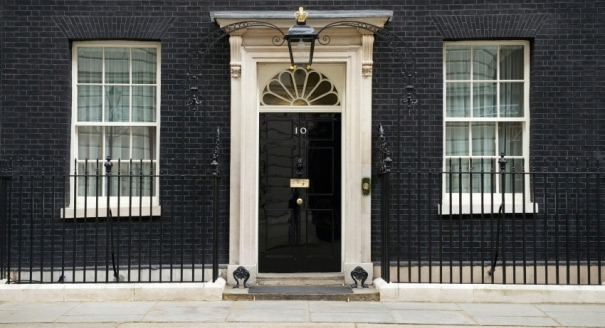This week, Europe and the wider world will be watching with interest—and perhaps some anxiety?—as Britain approaches its general election on May 7.
The reverse is not necessarily true. British elections rarely hinge on external issues, and political debates tend to become even more inward looking and personalized at such times.
But the present election is an unusual one in several ways. Might that also be true of the contest’s foreign policy dimension?
At first sight, there are both general and specific reasons for answering no. Generally speaking, Britain’s outgoing coalition government of the center-right Conservative Party and centrist Liberal Democrats has kept a low profile on the world stage. Euroskepticism, nonmembership in the eurozone, and the dwindling of any special relationship with Washington have left the UK increasingly marginalized—at least, in many outsiders’ eyes.
This ought to stimulate debate, and indeed, the coalition’s main challenger, the center-left Labour Party, makes a strong point in its election manifesto of promising to restore British influence. But the manifesto devotes only the last ten of its 90 pages to external issues; and in practice, Labour leader Ed Miliband’s public campaign has focused on internal matters like the economy and the National Health Service.
#Europe is the chief arena for the #UK to show global leadership.Tweet This
The fact is that Europe remains the chief and perhaps only arena for Britain to show decisive leadership in the world. And neither of the two main parties is ready to provoke public opinion by making the case for the EU too strongly.
Where Miliband has attacked Conservative Prime Minister David Cameron is over the recent tragic drowning of North African boat people in the Mediterranean, blaming the catastrophe partly on weak follow-up to the Western bombing of Libya in 2011. Whatever the merits of Miliband’s stance—and Labour did vote for the action in Libya—such behavior fits the pattern of short-termist, personalized responses to external stimuli that is all too familiar in British politics.
Besides, while Labour has opposed some specific military actions in recent years, notably over Syria, the party does support keeping strong military forces with the potential for worldwide action. Labour is merely more cautious about the financial details than is Cameron, who has promised to achieve a target of spending the equivalent of 2 percent of GDP on defense. It is fair to add that commentators have found the latest crop of Conservative spending promises to be surprisingly generous and less than fully costed.
This is not the whole story, however. The election on May 7 is widely expected to lead to another coalition and/or political support agreements with some of the smaller parties. The possible permutations are still very open, but they could raise intriguing issues for future British relations with both the EU and NATO.
On Europe, the Scottish National Party (SNP) and the Liberal Democrats are more forthrightly pro-EU than either major party. The SNP strongly opposes Cameron’s proposal for a referendum on British withdrawal from the EU by 2017 and, above all, the idea that an English majority could pull Scotland out of the EU against its will.
As the SNP is tipped by current polls to win a very large majority (or even all) of the 59 seats in Scotland, how the nationalists play their hand on this issue, either in opposition or in the government camp, will matter. Should a so-called Brexit go forward after all, it is widely suggested that it might trigger a renewed bid for Scottish independence, which was rejected in a referendum in September 2014.
The SNP has also brought nuclear policy into the election. Basically set on scrapping Britain’s nuclear deterrent—the Trident program—the party has said it will reject any decision during the next parliament on renewing the relevant hardware. Both the Conservatives and Labour, in response, have stressed their commitment to Britain’s nuclear role, citing the latest tensions with Russia among the justifications. (The Liberal Democrats have previously shown interest in cheaper alternatives to Trident.)
It remains to be seen whether the nuclear issue is a deal breaker for potential SNP cooperation with the election winners. One simple solution would be further postponement of Trident-related decisions. Whether this could cause serious upset with NATO and the United States is as yet unknown—but at least the SNP now favors NATO membership, in a reversal of the party’s previous position.
One main result of #GE2015 could be further hesitant British diplomacy.Tweet This
Perhaps the main external result of the election, if the vote does lead to a two-party or even three-party government, could be a further period of hesitant and mainly reactive British diplomacy. The UK is not skilled in coalition politics, and agreeing a platform on key internal issues will absorb everyone’s main energies.
In other countries, giving the job of foreign minister to the leader of a small coalition partner is quite a common solution. It gives the junior party leader an honorable platform without too much scope for interference in home affairs. Such a step would be a first for the UK, and perhaps it is still not feasible—but it may be one of the more interesting scenarios to watch out for.
Alyson Bailes is adjunct professor at the University of Iceland and a fellow and board member at the Scottish Global Forum.








